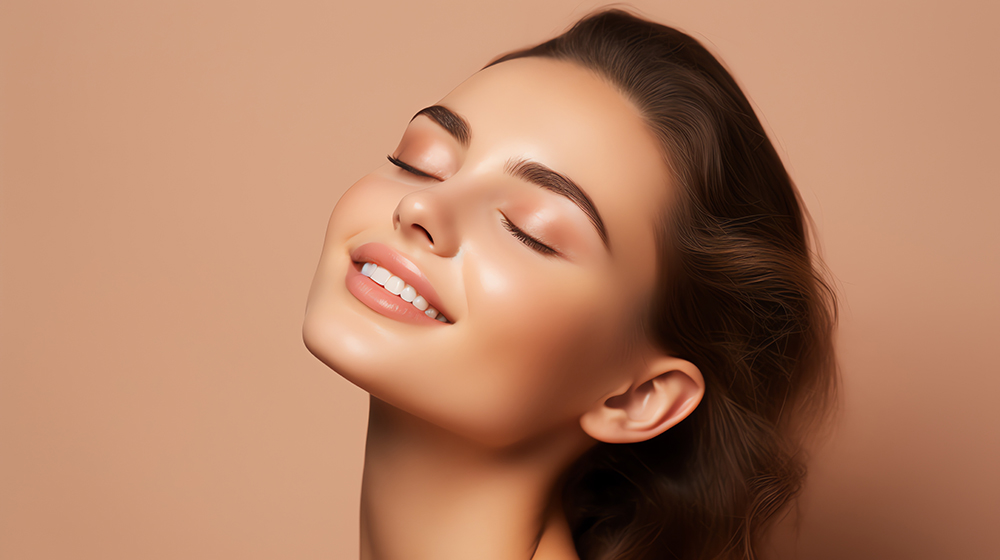Functional rhinoplasty is a surgery that involves modifying the structure of the nasal tissues to improve nasal breathing. Most patients enjoy better health and an improved quality of life after the procedure. The Ocean Clinic offers both aesthetic and functional rhinoplasty, and this blog will shed some light on the latter.
Functional vs. Cosmetic Rhinoplasty
Functional and cosmetic rhinoplasties are similar procedures that address different concerns and may involve surgeries on a variety of nasal tissues.
Functional Rhinoplasty
Functional rhinoplasties correct breathing and sinus problems caused by structural issues like a deviated septum, weak nasal sidewalls, and swollen turbinate tissues. Corrective surgery may include septoplasty, turbinate reduction, and cartilage transplants. Many functional rhinoplasties also provide cosmetic benefits.
Cosmetic Rhinoplasty?
Cosmetic rhinoplasties change the appearance of the nose by reshaping, resizing, straightening, and correcting asymmetry at its bridge or base. They can also reduce or conceal a bump or hump or correct a bulbous or pinched nasal tip by altering the structure of bones and cartilage. These rhinoplasties can help balance the look of your face and boost confidence in your appearance.
Who Is an Ideal Candidate for Rhinoplasty?
Ideal candidates for a functional rhinoplasty are otherwise healthy adults whose noses have structural attributes that make it difficult to breathe or smell properly, including:
- Deviated septums
- Enlarged turbinates
- Polyps, tumors, or nasal obstructions
- Trauma, injury, or infection
- Deformities and birth defects
- Nasal valve narrowing or collapse
How to Prepare for a Functional Rhinoplasty
To prepare for your rhinoplasty, it’s important to plan for your needs before and after surgery. You will need to:
1. Take Care of Your Health
- Eat balanced meals that include plenty of healthy, fresh fruits and vegetables. You will need to stop eating and drinking the night before and the morning of your surgery.
- Drink plenty of water to help your body’s cells function well.
- Exercise regularly in the weeks leading up to your surgery, but only take light exercise in the days before your procedure.
Get at least eight hours of sleep a night.
2. Take Care of Your Skin and Teeth
- The week before surgery, you should cleanse and moisturize your face twice daily with gentle products. Avoid using topical medicated treatments like Retin-A, exfoliating acids, and benzoyl peroxide during this time.
- Wear sunscreen and avoid exposure to the sun, which can damage your skin and inhibit healing.
- Practice good oral hygiene. Floss and brush your teeth thoroughly twice a day.
3. Abstain from Alcohol, Tobacco, and Prohibited Medications
Stop drinking alcohol, using tobacco, and taking aspirin, or any other medications or supplements that can affect blood flow and have potentially adverse effects on recovery.
As you prepare for your rhinoplasty, it’s also important to make plans for your post-surgical recovery.
4. Make a Recovery Space
Create a cozy recovery space with all of your essentials at hand where you can relax for an extended time. Get all the pillows, blankets, movies, books, electronic devices, and chargers you need to feel comfortable.
5. Anticipate Your Medical Needs
Fill your prescriptions and gather medical supplies your doctor recommends, including approved over-the-counter pain relievers, supplements, nasal sprays, ointments, rinses, cotton applicators, and tissues. Also, prepare some ice packs to help with pain and swelling.
6. Arrange for Transportation and Care
It’s important to arrange for transportation to and from surgery. Try to have someone stay with you for the first day of your recovery to help look after your needs. Be sure to make arrangements to ensure that your children and any dependents are cared for during your recovery.
What to Expect During Recovery
Recovery periods may vary, but in most cases, you will see some subtle changes by the second or third week, post-operation. You will observe more noticeable changes by the third month. Below is a typical recovery timeline.
Week 1
The first week after your surgery, you will experience some bruising, swelling, and discomfort around your nose and eyes that will gradually subside. Breathing through your nose may be limited, but it should become easier as your swelling goes down. It’s important to rest, elevate your head, and avoid strenuous activity during this time.
Weeks 2-4
The second week into your recovery, your swelling and bruising will be significantly reduced, and your breathing will improve. You can resume most normal activities as long as you avoid strenuous or high-contact work or recreation.
Weeks 5-12
As the weeks pass after surgery, most of your swelling should resolve. The new shape of your nose will become better defined within three months. It’s important to avoid direct sun exposure, pressure, or impact during this time.
Schedule a Consultation at The Ocean Clinic
Rhinoplasty is a common and popular procedure that can improve your health and enhance your appearance. If this procedure is what you need, it’s important to consult with a highly qualified and experienced surgeon. Dr. David Reinstadler will be able to educate you about all aspects of surgery, tailor the procedure to meet your specific needs and provide care that ensures you achieve the best possible results from your surgery.
The Ocean Clinic in Newport Beach, CA, is dedicated to providing you with the best possible care to ensure that your surgery is a success. To learn more about the benefits of rhinoplasty, schedule a consultation with us. We’ll be happy to discuss how rhinoplasty can help you enjoy a better quality of life for years to come.

